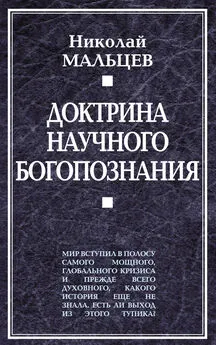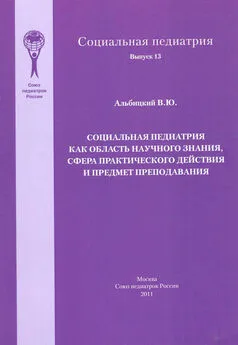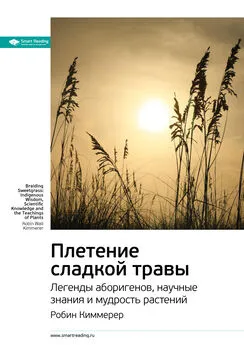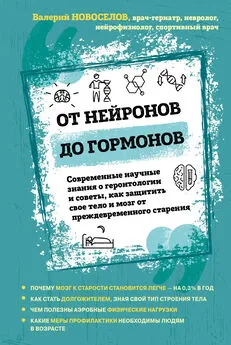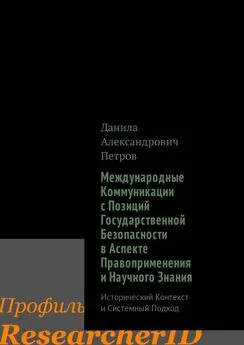Нико Штер - Власть научного знания
- Название:Власть научного знания
- Автор:
- Жанр:
- Издательство:Алетейя
- Год:2015
- Город:Санкт-Петербург
- ISBN:978-5-9905769-3-3
- Рейтинг:
- Избранное:Добавить в избранное
-
Отзывы:
-
Ваша оценка:
Нико Штер - Власть научного знания краткое содержание
В центре внимания социологов Нико Штера и Райнера Грундманна – вопрос о том, при каких условиях научное знание влияет на практическую политику и как именно организовано это влияние.
В поисках ответа авторы книги анализируют три кейса – экономическую теорию и политику Кейнса, науку о расах и ее роль в трагедии холокоста, а также исследования в области климатологии, их восприятие в обществе и их последствия.
Власть научного знания - читать онлайн бесплатно ознакомительный отрывок
Интервал:
Закладка:
Stehr, Nico, and Meja, Volker. 1990. „Relativism and the Sociology of Knowledge“, in: Meja, Volker, and Stehr, Nico (Eds.) Knowledge and Politics. tte Sociology of Knowledge Dispute. London. P. 285–306.
Stehr, Nico, and Wilhelm Baldamus. 1983. “Accounts and action: the logic(s) of social science and pragmatic knowledge”, in: Burkart Holzner et al. (Eds.) Realizing Social Science Knowledge. Würzburg: Physica. P. 73–78.
Stehr, Nico. 1981. “tte Magic Triangle: In Defens of a General Sociology of Knowledge”, in: Philosophy of the Social Sciences II. P. 225229.
Steindl, Josef. 1985. “J.M. Keynes: Society and the Economist”, in: Fau-sto Vicarelli (Ed.) Keynes’s Relevance Today. London: Macmillan. P. 99125.
Stern, Nicholas. 2007. The Economics of Climate Change. Cambridge: Cambridge University Press.
Stichweh, Rudolf. 1999. „Globalisierung von Wirtschaft und Wissenschaft: Produktion und Transfer wissenschaftlichen Wissens in zwei Funk-tionssytemen der modernen Gesellschaft“, in: Soziale Systeme 5. S. 27–39.
Stinchcombe, Arthur L. 1994. “Disintegrated Disciplines and the Future of Sociology”, in: Sociological Forum 9. P. 279–291.
Stoddard, Lothrop. 1924. Racial Realities in Europe. New York.
Stolarski, R. S. 1986. “Nimbus 7 Satellite Measurements of the Springtime Antarctic Ozone Decrease”, in: Nature 322. P. 808–811.
Storm, Servaas. 2009. “Capitalism and Climate Change: Can the Invisible Hand Adjust the Natural Thermostat?”, in: Development and Change 40 (6). P. 1011–1038.
Stubbs, Graham. 2009. “The Fossil Fuel Industry and the Challenge of Climate Change: A Study of Shell’s Position”. PhD thesis, Birmingham (UK): Aston University.
Sugden, Robert. 1993. „Welfare, Resources, and Capabilities: A Review of Inequality Reexamined be Amartya Sen“, in: Journal of Economic Literature 31. P. 1947–1962.
Sylvan, Donald A., and Goel, Ashok, and B. Chandasekaran. 1990. “Analyzing Political Decision-Making from an Information-Processing Perspective: JESSE”, in: American Journal of Political Science 34. P. 74–123.
Taylor, Charles. 1983. „Political Theory and Practice“, in: Lloyd, Christopher (Ed.) Theory and Political Practice. Oxford. P. 61–85.
Tenbruck, Friedrich H. 1986. Geschichte und Gesellschaft. Berlin: Duncker & Humblot.
Tenbruck, Friedrich H. 1984. Die unbewältigten Sozialwissenschaften. Graz.
Tenbruck, Friedrich H. 1977. „Grenzen der staatlichen Planung“, in: Hennis, Wilhelm, und Kielmansegg, Peter Graf, und Matz, Ulrich (Hg.) Regierbarkeit. Studien zu ihrer Problematisierung. Band I. Stuttgart. S. 134–149.
Tenbruck, Friedrich H. 1969. “Regulative Funktionen der Wissenschaft in der pluralistischen Gesellschaft”, in: Scholz, Herbert (Hg.) Die Rolle der Wissenschaft in der modernen Gesellschaft. Berlin S. 61–85.
Tenbruck, Friedrich H. [1967] 1971 „Zu einer Theorie der Planung“, in: Ronge, Volker, und Schmieg, Günter (Hg.) Politische Planung in №eo-rie und Praxis. München. S. 91-117.
Thomas, Kenneth W., and Tymon, Walter G. jr. 1982. “Necessary Properties of Relevant Research: Lessons from Recent Criticisms of the Organizational Sciences”, in: Academy of Management Review 7. P. 345352.
Thompson, John B. 1987. “Language and Ideology: A Framework for Analysis”, in: Sociological Review 35. P. 516–536.
Tichy, Noel M. 1974. “Agents of Planned Social Change: Congruences of Values, Cognitions and Actions”, in: Administrative Science Quarterly 19. P. 164–182.
Tobin, James. 1986. “Keynes’s policies in theory and practice”, in: Harold L. Wattel (Ed.) He Policy Consequences of John Maynard Keynes. London: Macmillan. P. 13–21.
Toke, Dave. 1999. “Epistemic Communities and Environmental Groups”, in: Politics 19. P. 97–102.
Tol, Richard. 2010. “Richard Tol on Working Group 3 of IPCC”, http: //klimazwiebel.blogspot.com/2010/02/richard-tol-on-wg3-of-ipcc.html.
Traweek, Sharon. 1988. Beamtimes and Lifetimes: He World of High Energy Physicists. Cambridge, MA: Harvard University Press.
Tribe, Keith. 1983. “Prussian Agriculture – German Politics: Max Weber 1892–1897”, in: Economy and Society 12. P. 181–226.
Tribe, Laurence. 1972. “Policy Science: Analysis or Ideology”, in: Philosophy & Public Affairs 2. P. 66–110.
Trumbo, Craig. 1996. “Constructing Climate Change: Claims and Frames in US News Coverage of an Environmental Issue”, in: Public Understanding of Science 5 (3). P. 269.
Truzzi, Marcello. 1996. “Pseudoscience”, in: Stein, Gordon (Ed.) He Encyclopedia of the Paranormal. Buffalo, New York. P. 560–575.
Ture, Norman B. 1982. “Supply Side Analysis and Public Policy”, in: Raboy, David G. (Ed.) Essays in Supply Side Economics. Washington, D.C.
Twain, Mark . 1985. Concerning the Jews. Philadelphia.
Tyaglyy, Mikhail I. 2004. “He Role of Antisemitic Doctrine in German Propaganda in the Crimea, 1941–1944”, in: Holocaust and Genocide Studies 18 (3). P. 421–459.
Tyndall, John. 1863. Heat as a Mode of Motion. London.
Ulrich, Peter. 1987. Transformation der ökonomischen Vernunft. Fortschrittsperspektiven der modernen Industriegesellschaft. Bern, Stuttgart.
Ungar, Sheldon. 1992. „He Rise and (Relative) Decline of Global Warming as a Social Problem”, in: He Sociological Quarterly 33. P. 483501.
Unger, Roberto M. 1984. Knowledge & Politics. New York.
van den Vall, Mark, and Bolas, Cheryl A. 1982. “Using Social Policy Research for Reducing Social Problems: An Empirical Analysis of
Structure and Functions”, in: Journal of Applied Behavioral Science
18. P. 49–67.
van den Vall, Mark, and Bolas, Cheryl A. 1981. “External vs. Internal Social Policy Researchers”, in: Knowledge: Creation, Diffusion, Utilization 2. P. 461–481.
van Der Sluijs, Jeroen, Josee van Eijondhoven, Simon Shackley, and Brian Wynne. 1998. “Anchoring Devices in Science for Policy: The Case of Consensus around Climate Sensitivity”, in: Social Studies of Science 28 (2). P. 291–323.
Verein Ernst Mach. [1929] 1981. „Wissenschaftliche Weltauffassung. Der Wiener Kreis“, in: Neurath, Otto. Gesammelte philosophische und methodologische Schriften. Band I. Wien. S. 299–316.
Virchow, Rudolf. [1885] 1922. „Über Akklimatisation“, in: Sudhoff, Karl. Rudolf Virchow und die deutschen Naturforscherversammlungen. Leipzig. S. 214–239.
Vogel, Kathleen. 2006. „Bioweapons Proliferation: Where Science Studies and Public Policy Collide“, in: Social Studie of Science 36. P. 659690.
vom Bruch, Rüdiger. 1980. Wissenschaft, Politik und öffentliche Meinung. Gelehrtenpolitik im Wilhelminischen Deutschland (1890–1914). Historische Studien Heft 435. Husum.
von Mises, Ludwig. 1931. Die Ursachen der Wirtschaftskrise. Tübingen: J.C.B. Mohr (Paul Siebeck).
von Schelting, Alexander. 1934. Max Webers Wissenschaftslehre. Tübingen: J.C.B. Mohr (Paul Siebeck).
von Schomberg, Rene. 1993. „Controversies and Political Decision Making”, in: R. Schomberg (Ed.) Science, Politics and Morality. Dordrecht. P. 7–26.
Wagner, Adolf. 1892. „Das neue sozialdemokratische Programm“, in: Bericht über die Verhandlungen des Dritten Evangelisch-sozialen Kongresses. Berlin. S. 57–99.
Wagner, Peter. 1990. Sozialwissenschaften und Staat: Frankreich, Italien und Deutschland 1870–1980. Frankfurt am Main: Campus.
Wagner, Peter, and Wittrock, Björn. 1988. Social Science in Societal Context. Cambridge.
Walker, Mark, and Renneberr, Monika (Eds.) 1994. Science, Technology and National Socialism. Cambridge.
Ward, William Reginald. 1979. Theology, Sociology and Politics. The German Protestant Conscience 1890–1933. Bern.
Watson, Robert T. 2010. “UN Must Investigate Warming ‘Bias,’ Says Former Climate Chief’, in: Sunday Times (15 February).
Watson, Robert T. 2005. ‘Turning Science into Policy: Challenges and Experiences from the Science-Policy Interface.’ Philosophical Transactions of the Royal Society of London. Series B, Biological sciences 360(1454): 4717. doi: 10.1098/rstb.2004.1601.
Wattel, Harold L. 1985. “Introduction”, in: Harold L. Wattel (Ed.) The Policy Consequences of John Maynard Keynes. London: Macmillan. P. 3–12.
Weart, Spencer R. 2003. The Discovery of Global Warming. Cambridge, MA: Harvard University Press.
Weaver, Warren. 1948. „Science and Complexity“, in: American Scientist 36. P. 536–544.
Weber, Alfred. 1931. „Grundlagen und Grenzen der Sozialpolitik“, in: Schriften des Vereins für Sozialpolitik 182. P. 23–58.
Weber, Alfred. 1932. Volkswirtschaftslehre: Eine Einführung. Vol. 2. Munich and Leipzig: Duncker & Humblot.
Weber, Alfred [1935] 1956. Kurzgefasste Volkswirtschaftslehre. Siebente, neuberabeitete Auflage. Berlin: Duncker & Humblot.
Weber, Marianne [1926] 1975. Max Weber: A Biography. New York.
Weber, Max 1936. Jugendbriefe. Tübingen.
Weber, Max [1924] 1988. „Diskussionsrede zum Vortrag von F. Oppenheimer über 'Die rassentheoretische Geschichtsphilosophie'“, in: Weber M. Gesammelte Aufsätze zur Soziologie und Sozialpolitik. Tübingen. S. 488–491.
Weber, Max [1922] 1972. Wirtschaft und Gesellschaft. Tübingen.
Weber, Max. 1911. „Discussion“, in: Verhandlungen des Ersten Deutschen Soziologentages vom 19.-22. Oktober 1910 in Frankfurt am Main. Tübingen: J.C.B. Mohr (Paul Siebeck). S. 151–164.
Weber, Max [1921] 1958. Gesammelte politische Schriften. Zweite Auflage. Tübingen: J.C.B. Mohr (Paul Siebeck).
Weber, Max [1922] 1978. “Race Relations”, in: W.G. Runciman (Ed.) Weber: Selections in Translation. Translated by Eric Matthews. Cambridge: Cambridge University Press (alternative translation). P. 359–369.
Weber, Max [1910] 1978a. „Antikritisches Schlußwort zum 'Geist des Kapitalismus'“, in: Winkelmann, Johannes (Hg.) Die Protestantische Ethik II: Kritiken und Anti-Kritiken. Hamburg. S. 283–344.
Weber, Max [1910] 1978b. „Antikritisches zum 'Geist des Kapitalismus'“, in: Winkelmann, Johannes (Hg.) Die Protestantische Ethik II: Kritiken und Anti-Kritiken. Hamburg. S. 149–187.
Weber, Max [1908–1909] 1988. “Zur Psychophysik der industriellen Arbeit“, in: Weber M. Gesammelte Aufsätze zur Soziologie und Sozialpolitik. Tübingen. S. 61-225.
Weber, Max [1904] 1922. “Die 'Objektivität' sozialwissenschaftlicher und sozialpolitischer Erkenntnis“, in: Weber M. Gesammelte Aufsätze zur Wissenschaftslehre. Tübingen. S. 146–214.
Weber, Max [1895] 1921. “Der Nationalstaat und die Volkswirtschaftspolitik“, in: Weber, Max. Gesammelte politische Schriften. München. S. 7-30.
Weber, Max. 1897. „Entwicklungstendenzen in der Lage der ostelbischen Landarbeiter“, in: Archiv für soziale Gesetzgebung und Statistik 7. S. 1-41.
Читать дальшеИнтервал:
Закладка:



